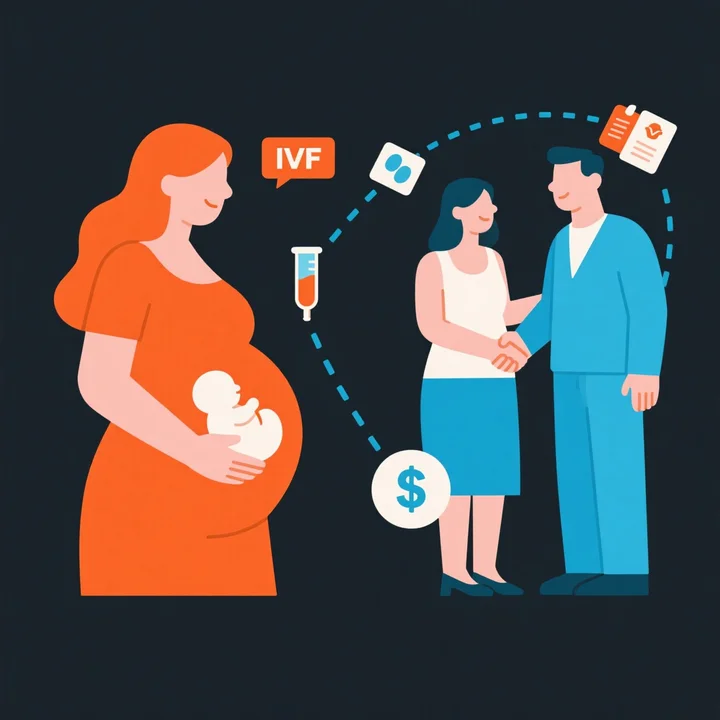The short answer: Neither is “better”—it depends on your medical situation, finances, and family goals. Here’s how to decide:
1. When IVF Is the Right Choice
IVF (In Vitro Fertilization) works best if:
✔ You can carry a pregnancy (no uterine issues).
✔ Cost is a concern (IVF is 15K–30K vs. surrogacy’s $100K+).
✔ You want a genetic connection (using your own eggs/sperm).
IVF Success Rates
- Under 35: 50–65% live birth per cycle.
- Over 40: 10–30% (lower with own eggs).
Best for: Couples with infertility, blocked tubes, or mild male factor issues.
2. When Surrogacy Is Necessary
Gestational surrogacy is better if:
✔ You can’t carry a pregnancy (hysterectomy, heart conditions, recurrent loss).
✔ Same-sex male couples/single men want biological children.
✔ IVF repeatedly fails (even with good embryos).
Surrogacy Success Rates
- With donor eggs: 65–80% live birth per transfer.
- With your own eggs: Depends on age (see IVF rates above).
Best for: Those needing a gestational carrier for medical or social reasons.
3. Key Differences
| Factor | IVF | Surrogacy |
|---|---|---|
| Cost | 15K–30K per cycle | 100K–150K+ |
| Time | 3–6 months per attempt | 1.5–2 years (matching + pregnancy) |
| Genetic Connection | Possible with own gametes | Possible with own/donor gametes |
| Legal Complexity | Low (standard fertility treatment) | High (contracts, parental rights) |
4. Can You Try IVF Before Surrogacy?
✅ Yes—many intended parents attempt IVF first, then switch to surrogacy if:
- Multiple transfers fail.
- Pregnancy is medically unsafe.
5. How to Decide
Ask yourself:
- Can I physically carry a baby? (If no → surrogacy).
- What’s my budget? (IVF is far cheaper).
- How soon do I want a child? (Surrogacy takes longer).
Consult a fertility specialist to review your options.
Final Verdict
- IVF: Best for those who can carry a pregnancy and want lower costs.
- Surrogacy: Essential for those who can’t carry or need a gestational carrier.
Still unsure? Compare IVF vs. surrogacy costs and success rates with a clinic.




